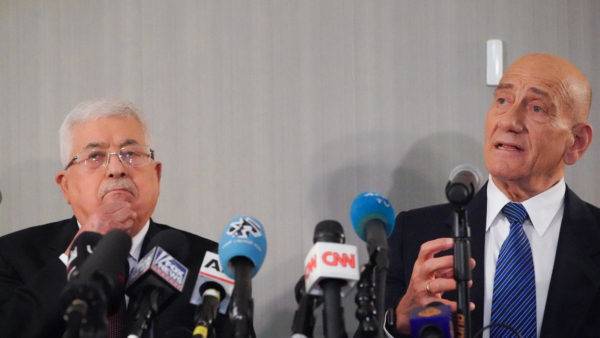The war between Israel and Hamas—now in its ninth week after a brief cease-fire—has made talk of peace processes and hopes for final-status agreements seem more remote than ever. But the brief pause in fighting and the successful hostage exchange brokered with the assistance of Qatar—along with Egypt and the United States—suggested that there is space for diplomacy even amid a brutal war.
Rather than seeking blueprints for a permanent peace deal, which seems far-fetched given the current Israeli and Palestinian political leadership, Foreign Policy asked a range of experts two narrower questions:
What will Gaza look like one year from now?
What single policy could any actor in this conflict pursue that would make it less likely that this war will end like so many others, with the same security threats remaining and key political grievances unresolved?
Ya Libnan will be featuring the responses as they appeared on Foreign Policy website
This is the response of former Israeli PM Ehud Olmert
Netanyahu Should Step Aside
By Ehud Olmert, former prime minister of Israel
1. Israel’s campaign in Gaza will continue until Hamas’s military capabilities are eliminated. It’s hard to guess how long it will take, but if we are to be honest, it will take longer than Western societies are prepared to accept, longer than what their leaders, and above all U.S. President Joe Biden, a close friend of Israel, are willing to tolerate.
2. Exactly for this reason, it is imperative that Israel already provide, at this stage, a picture of what comes next after the army has completed its work. It should be based on the following principles and assumptions:
Israel has no intention, desire, or ability to stay in Gaza at the end of the military campaign.
When the war is over, Israel must withdraw all the way to the border. No force connected to the Palestinian Authority or the Arab states will be willing to enter Gaza when the IDF withdraws.
All moderate Arab countries wish to see the destruction of Hamas, which is a destabilizing force for their own regimes.
The brutal killings perpetrated by the group on Oct. 7 were, by the standards of these countries, a disgrace to Islam and its values. But none of these countries want to be seen as lending a hand to Israel’s military campaign.
Therefore, if the United States and other allies of Israel are unwilling to allow Israeli forces to remain in Gaza, there is no alternative but an international force from NATO states, under the auspices of Chapter VII of the U.N. Charter, through which the Security Council will rebuild the civilian authorities and governing systems in the Gaza Strip for a period of approximately 18 months.
Then, and only then, is there a possibility that the security apparatus of the Palestinian Authority can replace the international force in Gaza.
In parallel with this effort—and starting now—Israel must offer a political horizon for the end of the military campaign.
The state of Israel must announce that immediately after the cessation of the military campaign, talks will begin with the Palestinian Authority based on a two-state solution—which is the only political horizon that can offer stability, cooperation between Israelis and Palestinians, and cooperation between Israel
and the moderate Arab states within the framework of the Arab League peace initiative.
There is no doubt that the Netanyahu government is unwilling, unable, and unprepared to make such a bold move.
For this reason and others, the government needs to step aside immediately.


Leave a Reply
You must be logged in to post a comment.